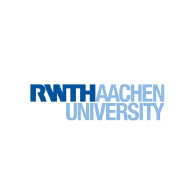|
Organisation acronym |
RWTH |
|
Country |
Germany |
|
WP contribution |
WP 1, 3, 5, 6, 8 |
|
Website |
Brief description of the Partner
The institute for Power Electronics and Electrical Drives (ISEA) of RWTH Aachen University is an integrated institute with three chairs. Prof. Rik W. De Doncker holds the chair on Power Electronics and Electrical Drives, Prof. Dirk Uwe Sauer the chair on Electrochemical Energy Conversion and Storage Systems. Prof. Egbert Figgemeier holds the chair of Aging Processes and Lifetime Prediction of Batteries (ALB). With more than 120 scientists, engineers and permanent staff it is the largest university institute in Germany in the field of power electronics and energy storage. ALB is integrated in the Helmholtz Institute Münster (HIMS), which is placed in between Forschungszentrum Jülich GmbH, RWTH Aachen University and Münster University and thus bundles the battery expertise of all three institutions.
Within Prof. Sauer’s chair research is conducted on a wide range of topics across the entire value chain of a battery system. This includes modelling, analytics and lifetime prediction of batteries as well as research on battery system design and integration into different mobile applications. Furthermore, grid integration of energy storage systems and storage system analysis are within the focus of research towards stationary storage applications.
Role in the Project
In NAUTILUS project, RWTH as a leader of WP5 is responsible for the development of the operating strategy of the energy management system and its implementation within a corresponding control unit. As this control unit is utilized in the PoC (WP3) as well as the functional demonstrator (WP6), RWTH supports these tasks as well.

